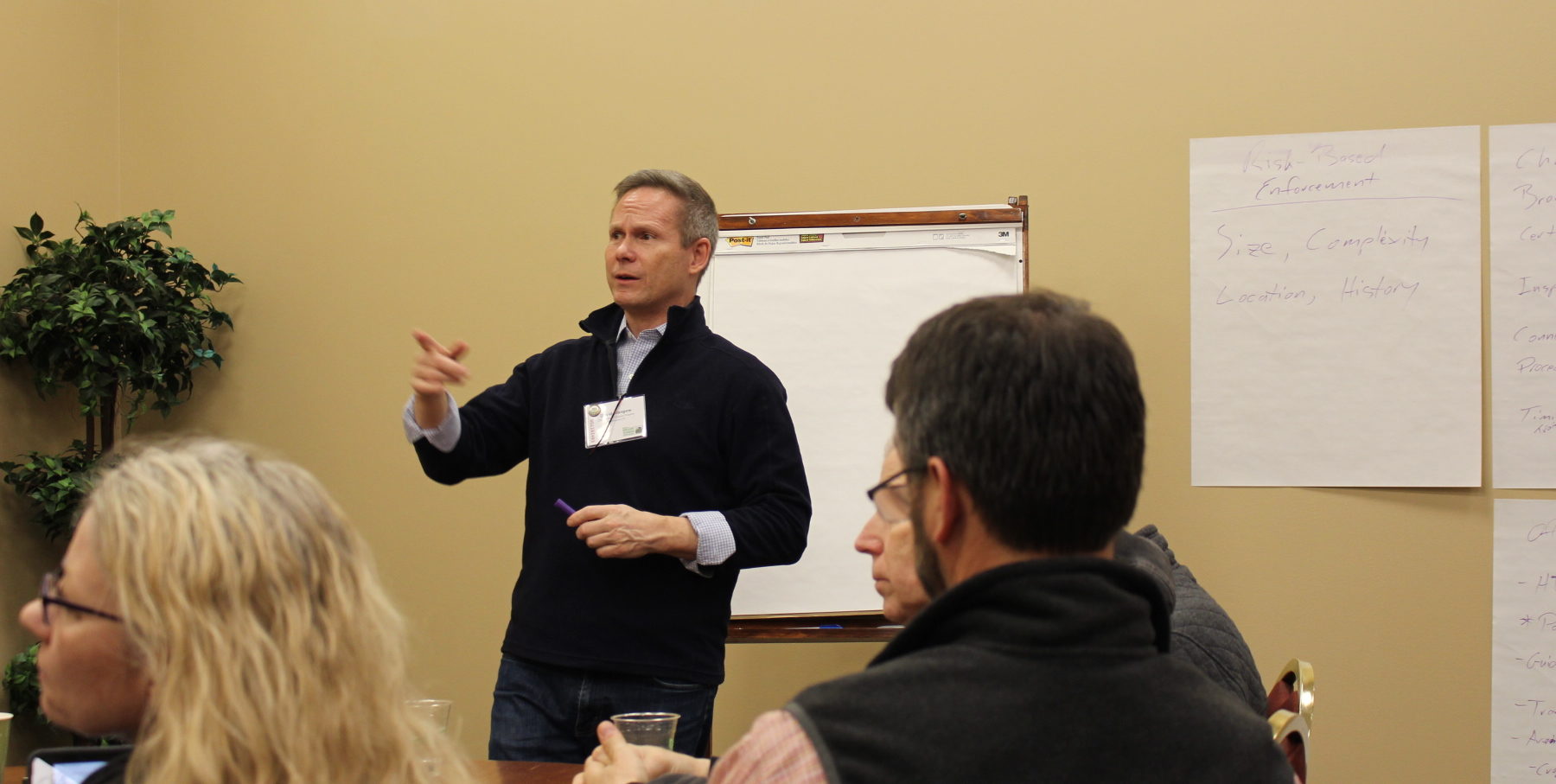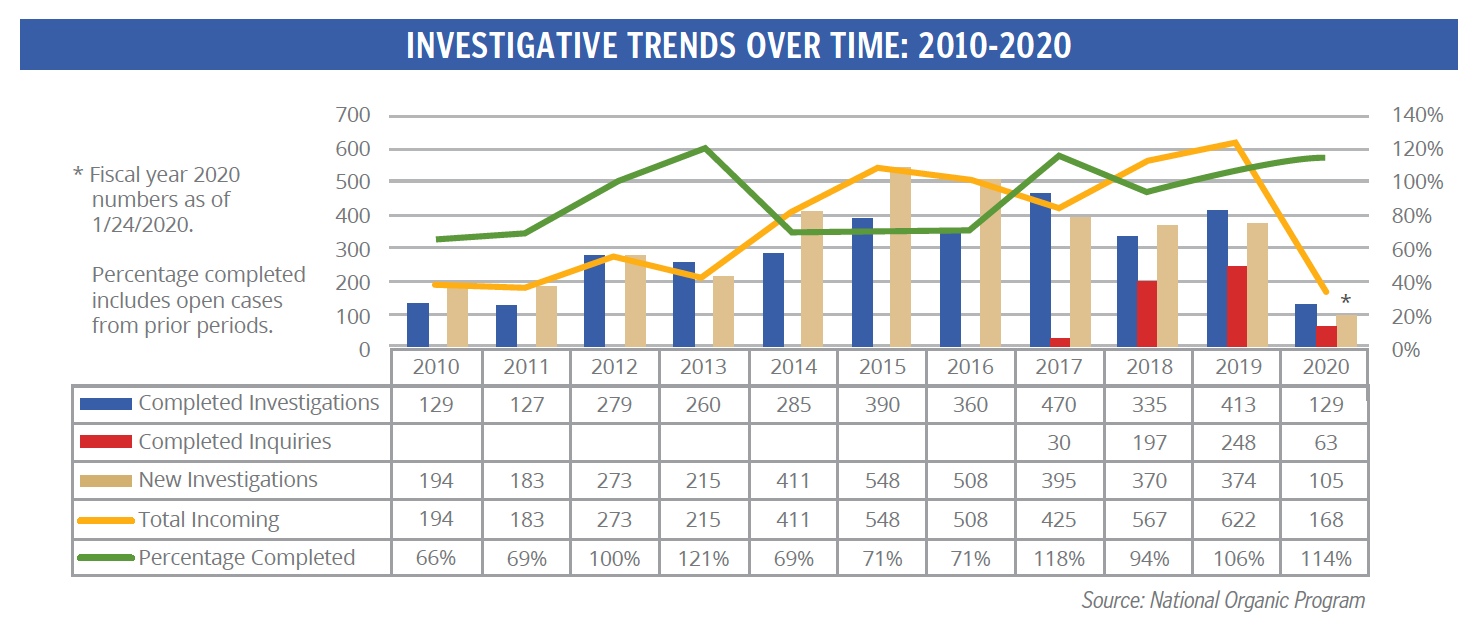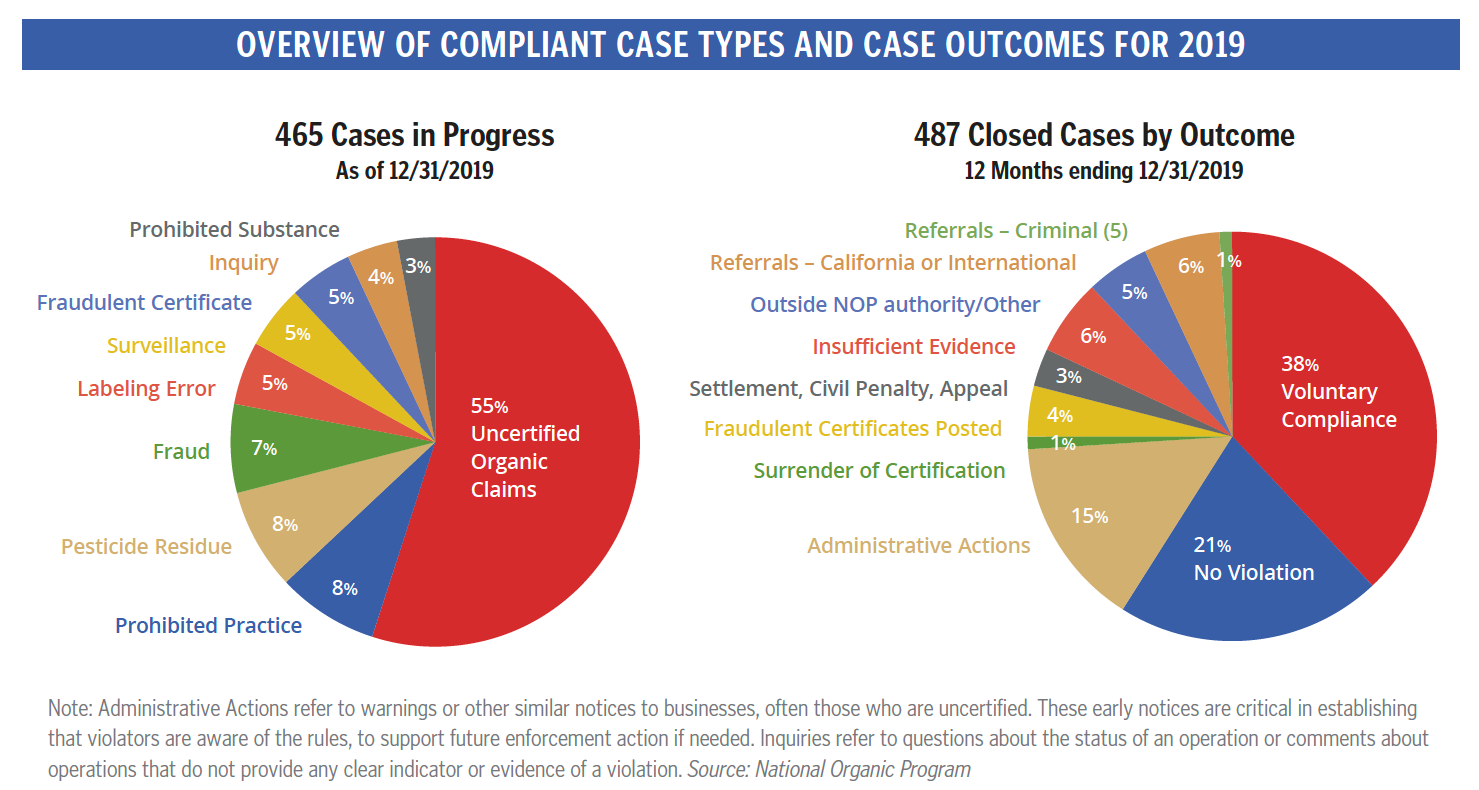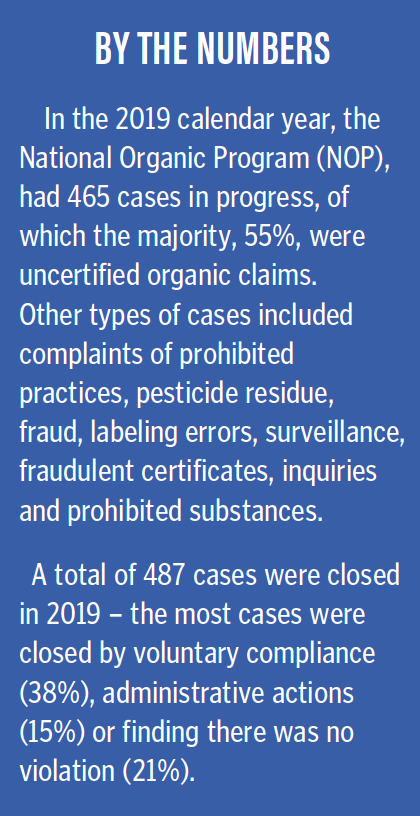
May 13, 2020
NOP brainstorms with growers for standards enforcement
In the classic film “To Catch a Thief,” police team up with Cary Grant for help catching a clever cat burglar.
A meeting with the same name took place in February at the Midwest Organic and Sustainable Education Service (MOSES) Organic Farming Conference in LaCrosse, Wisconsin. In this instance, USDA officials were teamed up with growers to help catch clever frauds.
Dave Glasgow, associate deputy administrator of the National Organic Program (NOP), explained the meeting’s purpose: to brainstorm ways of catching increasingly clever cheats who are defrauding organic consumers and undermining confidence in the USDA’s organic seal.
“I don’t want us to always be working in the past,” he said. “What can we be looking for?”
The past
National media have documented the cleverness of the rule-breakers. A 2018 Washington Post report shed light on conventionally-grown shipments of grain and soybeans that were sold in the U.S. as organic.
A series of domestic prosecutions in 2018 and 2019 also made headlines. Randy Constant of Chillicothe, Missouri, was convicted of wire fraud after admitting involvement in $142 million of grain sales from 2010 to 2017, of which the vast majority were fraudulent.
“The grain was not organic either because he purchased the grain from other growers, the certified organic fields were sprayed with unauthorized substances, or organic grain was mixed with non-organic grain,” according to a press release from the U.S. Attorney’s office. Constant made many of the sales through a brokerage he owned that operated in Ossian, Iowa, known as Jericho Solutions, according to the U.S. Attorney’s office.
Constant later reportedly committed suicide rather than report to federal prison. Four other individuals were convicted in what prosecutors called the “Field of Schemes Fraud” and the largest organic fraud case in U.S. history.

The present
In response to these high-profile cases, USDA has stepped up its enforcement efforts.
In February, Glasgow said funds for enforcement have reached $16 million, up from $9 million three years ago.
“We’ll be able to do even more unannounced visits all around the world,” he said.
The USDA said in its Organic Insider Newsletter in late March that the USDA Office of Inspector General (OIG) and NOP were training together for enforcement.
“In June 2019, NOP held face-to-face training with more than 40 OIG agents to teach them the organic regulations and NOP’s adverse action approach,” according to the newsletter. “In turn, OIG shared case studies and best practices for gathering evidence to support criminal investigations. OIG field agents also provided face-to-face training with domestic certifiers in January 2020.”
At press time in early April, NOP was also drafting a proposed rule called “Strengthening Organic Enforcement,” and preparing to take public comment.
“It will be vital for farmers to participate in that comment period, to make sure that we don’t accidentally make something harder for you,” Glasgow said.
 The future
The future
 As Glasgow said, enforcement should be designed to catch offenders in the future, rather than be “working in the past.” To that end, he asked growers for their best ideas.
As Glasgow said, enforcement should be designed to catch offenders in the future, rather than be “working in the past.” To that end, he asked growers for their best ideas.
Some of the ideas discussed of at the meeting included:
- Tracking organic products after production (establishing a chain of custody).
- Recognizing operations with organic and conventional “parallel production” as a greater risk for fraud.
- Using satellite imagery to track acres of supposedly organic production overseas.
- Hiring agricultural economists to layer data as context for reported complaints.
- Accountability at processing facilities, possibly including bioassay testing looking for prohibited materials.
- Requiring brokers of organic products to be certified.
“One of the loopholes right now is, there are a lot of brokers, and right now middlemen are not required to be certified,” Glasgow said.
Harriet Behar, a Wisconsin herb grower, former independent organic inspector, and until recently a member of the National Organics Board, participated in the meeting, offering several suggestions.
“All the fraud I ever caught was following acres and yields,” she said.
Above, Associate Deputy Administrator of the National Organic Program Dave Glasgow speaks at the Midwest Organic and Sustainable Education Service conference in LaCrosse, Wisconsin. Photo: Stephen Kloosterman






